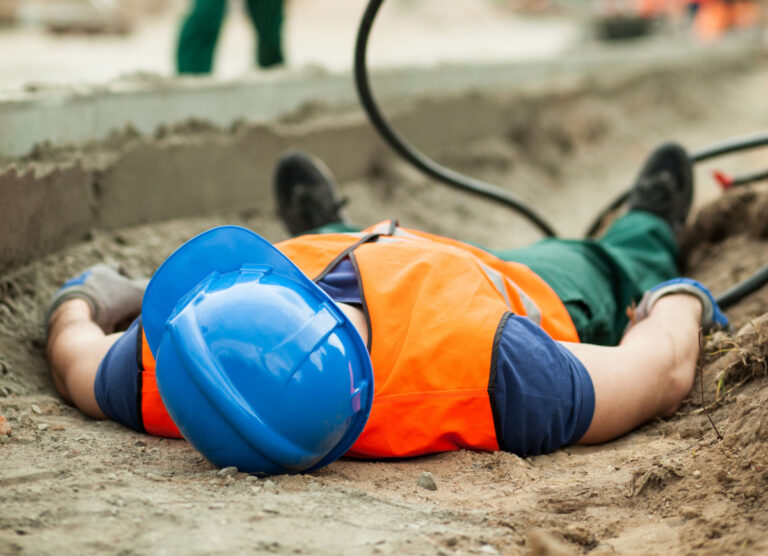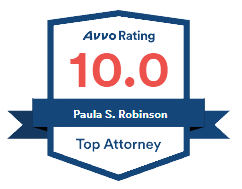Road work zones are a hive of activity, with both man and machine working in unison to build and repair our roads. However, they’re also hotspots for accidents and injuries, turning these zones into danger zones if not appropriately managed. In fact, according to the National Safety Council, over 42,151 injuries occurred in road work zone crashes in 2021.1 That doesn’t even include injuries that could occur while performing the job. Some of the most common types of injuries include:
- Falls
- Struck-by incidents
- Caught-in/between incidents
- Electrocution
- Overexertion injuries
So, how do construction and road work crews minimize the risks of the job? We’ll take a look at seven safety tips that can help prevent or lower the risk of injuries in road work zones to make sure everyone returns home safely at the end of the workday.
Tip #1: Prioritizing Proper Training and Education
The first step towards ensuring safety in road work zones is proper training and education. All workers should be thoroughly trained on how to safely operate machinery, handle tools, and understand the potential hazards of their work environment. Training should also include emergency response procedures to prepare workers for any unforeseen incidents. Education shouldn’t be a one-time event; regular refresher courses and safety meetings can help keep safety at the forefront of everyone’s mind.
Tip #2: Implementing Effective Communication Strategies
Communication is key in any high-risk environment, including road work zones. Implementing effective communication strategies ensures that all team members are aware of ongoing operations, potential hazards, and any changes in plans or procedures. This can be achieved through daily briefings, clear signage, and the use of two-way radios for immediate, real-time communication. Remember, when everyone is on the same page, accidents are less likely to occur.
Tip #3: Ensuring Regular Equipment Inspection and Maintenance
Faulty equipment is a significant cause of injuries in road work zones. To prevent this, it’s crucial to ensure regular inspection and maintenance of all tools, machinery, and vehicles used on-site. Not only does this reduce the risk of malfunctions that could lead to accidents, but it also extends the lifespan of your equipment, making it a win-win situation.
Tip #4: Using Appropriate Personal Protective Equipment (PPE)
Personal Protective Equipment (PPE) is an essential line of defense against workplace injuries. Workers should be equipped with high-visibility clothing, hard hats, safety glasses, gloves, and steel-toed boots. In areas with high noise levels, ear protection should also be provided. Remember, PPE can only be effective if used correctly, so training on proper usage is equally important.
Tip #5: Establishing Safe Traffic Control Measures
Road work zones often involve changes in traffic patterns, which can confuse motorists and put workers at risk. Therefore, it’s vital to establish safe traffic control measures. These could include using flaggers, installing temporary traffic control devices, or even closing off sections of the road entirely. Clear signage to alert drivers of upcoming work zones and speed limits can also help reduce the risk of accidents.
Tip #6: Promoting Visibility and Awareness in Work Zones
Visibility is crucial in busy work zones. Workers should wear reflective clothing, especially when working at night or in low-light conditions. Additionally, work areas should be well-lit, and large machinery or obstacles should be marked with high-visibility tape or lights. Promoting awareness also means staying alert and mindful of one’s surroundings at all times.
Tip #7: Encouraging Breaks to Avoid Fatigue and Maintain Focus
Finally, fatigue can be a significant safety hazard in road work zones. Physical labor and long hours can lead to exhaustion, reducing alertness and slowing reaction times. Encourage regular breaks to allow workers to rest and recharge. Providing a comfortable rest area, access to water, and healthy snacks can also help maintain energy levels and focus throughout the day. Remember, a well-rested worker is a safer worker.
Knowing Your Rights and Legal Options
In the aftermath of a road work zone accident, knowing your rights and understanding your legal options is paramount. Workers’ compensation exists to provide financial assistance for medical bills, lost wages, and other costs related to workplace injuries. However, navigating the complexities of these claims can be challenging.
This is where Robinson Law LLC comes into play. As a certified specialist in PA workers’ compensation, Paula Robinson advocates for your rights and does everything in her power to help you receive the compensation you deserve.
Knowledge is your greatest ally, and Robinson Law LLC provides exactly what you need. Take action today by learning about our legal services, like workers’ compensation for road work injuries. Your safety, health, and financial stability are too important to leave to chance. Meet Paula today and take the first step towards securing your future with a trusted workers’ compensation attorney in Montgomery County, PA, and the surrounding Eastern PA regions.









